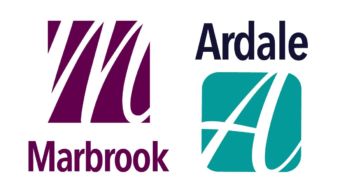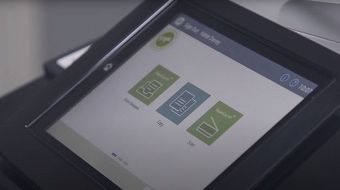
In recent years, technology has evolved to make our lives more efficient and connected. One significant transformation that has been happening across the United Kingdom is the retirement of analogue phones in favour of Voice over Internet Protocol (VoIP) services. This shift not only impacts individuals but also has far-reaching implications for businesses. In this blog, we will explore the retirement of analogue phones in the UK and how businesses can adapt and thrive in this digital landscape with the help of Vision's Unified Communications solutions.
The End of an Era: Analogue Phones in the UK
Analogue phones, once a staple of communication in the UK, have reached the end of their lifecycle. The UK government has been phasing out the Public Switched Telephone Network (PSTN) since 2015, with plans to complete the transition to an all-IP (Internet Protocol) network by 2025. This transition affects millions of homes and businesses relying on traditional phone lines, signalling the end of an analogue era that has lasted for generations. BT has announced the following list of exchanges, which are to be switched off in the coming months:
Rawcliffe, Hanley Swan, Malpas, Aberaeron, Stonehaven, Cupar, Healing, Evesham, Ingrebourne, Shurdington, Berkswell, Kimberley, Platt Bridge, Heswall, Kirby Muxloe, Bury, Great Harwood, Livingston Station, Leigh on Sea, Saint Barnabas, Gillingham, Sharrow, Fareham, Hinckley, Chelmsford, Kingsbridge, Trumpington, Maldon, Chingford, Stangford, Stoneyford, Martinstown, Seaforde, Baillies Mills, Broughshane, Kells, Crossgar, Ettrick Valley, Balmaha, Lismore, Roxburgh, Graffham, Owelsbury, Badminton and Rotherby.
Why the Move to VoIP?
VoIP, or Voice over Internet Protocol, is a technology that enables voice communication over the internet. It offers numerous advantages over analogue phone systems, including:
Cost Savings: VoIP typically costs less than traditional landlines, with lower call rates and reduced hardware expenses.
Flexibility: VoIP allows businesses to make and receive calls from anywhere with an internet connection, promoting remote work and business continuity.
Scalability: VoIP systems are easily scalable, making it simple for businesses to add or remove lines as needed.
Advanced Features: VoIP offers a wide range of features like video conferencing, voicemail-to-email, call forwarding, and more, enhancing productivity and customer service.
Integration: VoIP can seamlessly integrate with other business applications, such as CRM software, for enhanced efficiency.
Impact on Businesses
The retirement of analogue phones is having a serious impact on businesses across the UK. Preparedness is key. Companies must adapt to this change or risk losing their competitive edge. Here are some key challenges businesses may face during this transition:
Compatibility Issues: Older phone systems may not be compatible with VoIP, requiring businesses to invest in new hardware and infrastructure.
Downtime: Transitioning to VoIP may result in downtime during the switch, potentially disrupting business operations.
Employee Training: Staff may need training to effectively use the new VoIP system and its advanced features.
Security Concerns: VoIP systems can be vulnerable to cyber threats, necessitating robust security measures.
How Vision's Unified Communications Solutions Can Help
Vision, a leading provider of workplace technology and unified communications, offers businesses a lifeline during this transition. Here's how Vision can help mitigate the challenges of shifting from analogue to VoIP:
Seamless Integration: Vision's Unified Communications solutions seamlessly integrate with existing systems, minimising disruption during the transition.
Comprehensive Training: Vision provides thorough training and support for employees to ensure they can make the most of the new VoIP system.
Robust Security: Vision implements state-of-the-art security measures to protect your VoIP communications from cyber threats.
Scalability and Customisation: Vision's solutions are scalable and can be tailored to meet the specific needs of your business, whether you're a small start-up or a large enterprise.
Rapid Support: Vision offers superior SLAs to support and address any issues promptly and ensure uninterrupted communication.
The retirement of analogue phones in the UK marks a significant shift towards a more connected, efficient, and cost-effective communication system based on VoIP technology. While this transition presents challenges for businesses, Vision's Unified Communications solutions offer a comprehensive, tailored approach to help companies adapt and thrive in the digital age.
Embracing VoIP with Vision can lead to cost savings, increased flexibility, enhanced features, and improved overall communication, ensuring that businesses remain competitive and future-proof in the evolving landscape of telecommunications.
Get in touch today to discover how unified communications can help elevate your business and help you maintain your competitive edge.


